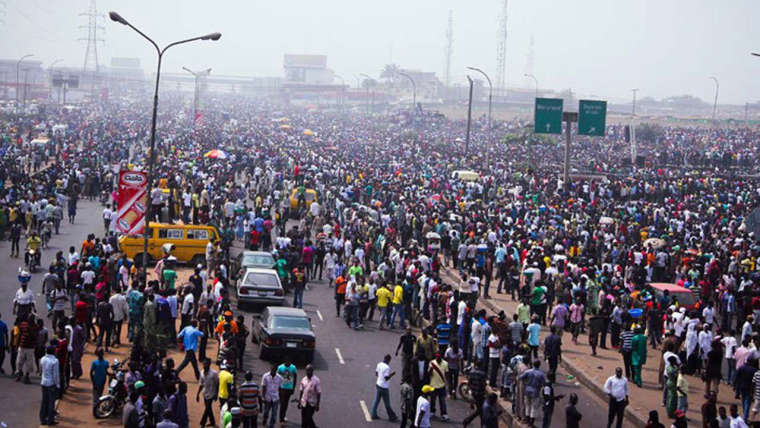
What does the Law's of Nigeria say about Referendum? Does our current laws support it?
See more explanations here: A Referendum in Nigeria's Context
What does the Law's of Nigeria say about Referendum?

What does the Law's of Nigeria say about Referendum? Does our current laws support it?
See more explanations here: A Referendum in Nigeria's Context
Firstly a referendum means a vote in which everyone of voting age in a country or an area are asked to give their opinion about or decide an important political, social or national question thereby guiding policy makers on the direction popular with the people.
The Constitution has no express provision on referendum even despite series of amendments, thus except and until the constitution is further amended to make provision for referendum, unless this is done, the 1999 constitution of Nigeria being the supreme law of the land has no window or room for referendum
@Omolade-Lawal Thanks for the clarification. It means Nigerian's are either shortchanged or have no power to make people based or populations based decisions like the UK voting to leave the EU, #Brexit.
Its sorrowful to say the least because in terms of decisions now, Nigerians will have been the ones to decide whether to sell off it's Nationals Assets like it's been deliberated upon in some circles.
@Abisola-Abimbola said in What does the Law's of Nigeria say about Referendum?:
To my understanding a referendum is a vote on a ballot question that is a direct vote in which the entire electorates are requested to vote on a particular proposal/issue. This may result in the adoption of a new law.
However in Nigeria, there is no referendum in the 1999 Constitution despite series of amendments made on it. This is a sad development. If this had been provided in our law, it wld have really moved our nation forward and correct some abnormalities of our leaders and even settle issues involving ethnicity problems (e.g Niger Delta wahala and issues involving other tribes). The consent of the people should be sought before certain laws are made. But this is not the case here.
I must confess this is really sad. :disappointed:
Nigeria indeed has a long way to go.
In Nigeria at the moment, one cannot talk about a Nigerian referendum without bringing Biafra into the picture as the embers of events leading to the civil war in the 70's appears to be re-ignited. But beyond this (Biafra matter), referendum is an act that could have a far-reaching effect, and countries that are truly democratic in setting, have employed this in addressing specific issues of national concern.
So, there lies the question: What is a Referendum? – According to Encyclopedia.com; A referendum is a form of direct democracy in which the entire electorate votes to accept or reject a policy proposal. The given definition has two key components I will like to highlight: ‘the Electorate’ and ‘Policy’. These two (elements) have a tremendous influence on the eventual outcome of the vote- the electorate is been expected to response to the question raised in the referendum by simply choosing to accept or reject.
A referendum is more like seeking a mutual avenue to end a ‘dispute’: putting one forward does not necessarily mean acceding to defeat plus there is no certainty that the victory will sway to one side or another until the votes are counted. However, it is important to state here that the state here that whatever move that is being must not be done without the state legislature’s involvement. In other words, referendum can only be permitted within the ambit of the law. Failure to do this will be tantamount to committing treason.
Now, focusing the lens on Nigeria; it would be injudicious to solely pin the word ‘Referendum’ to Biafra and the activities of IPOB- a scenario that borders on secession. The concept behind referendum is obviously broader than that, and there are a whole lot of issues that can be tackled through referendums. Again, we seem to sort of see referendum in ‘bad light’ in this part of the world so much that a special assistant to the president once put objectivity to the swords by limiting referendum to the Biafra situation. But far from it; the practice, if intently pursued, can help us correct some maladies that are apparent in the nation’s polity since it provides the avenue for the electorate to free express their opinions.
However, the ‘sad truth’ is that there is no such provision in the Nigerian constitution. So, before we can have a Nigerian referendum, there has to be a constitutional review. But who will ‘bell the cat’, and move the notion for the inclusion of referendum in the constitution?
If we are to progress as a truly democratic- with no inkling of dictatorship- nation then the electorate have got to be involved in [a more profound manner] in the decision-making process- not just the general election- especially as it regards passing certain laws.
The Nigerian referendum is not just about Biafra, and should not be limited to that. More so, considering the fact that some of the edicts that are presently in effect were triggered during the military regime, it is necessary to mastermind a means of reviewing some of those policies thus setting the tone for a restructured Nigeria- as such, referendums should be evoked to have this done. Besides, allowing referendums to take place will certainly quell many agitations that have without the use of force rising over the years as we get to reach a point where we agree to disagree.